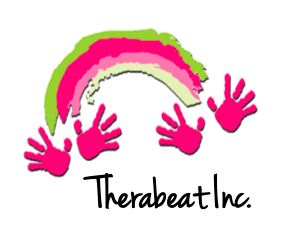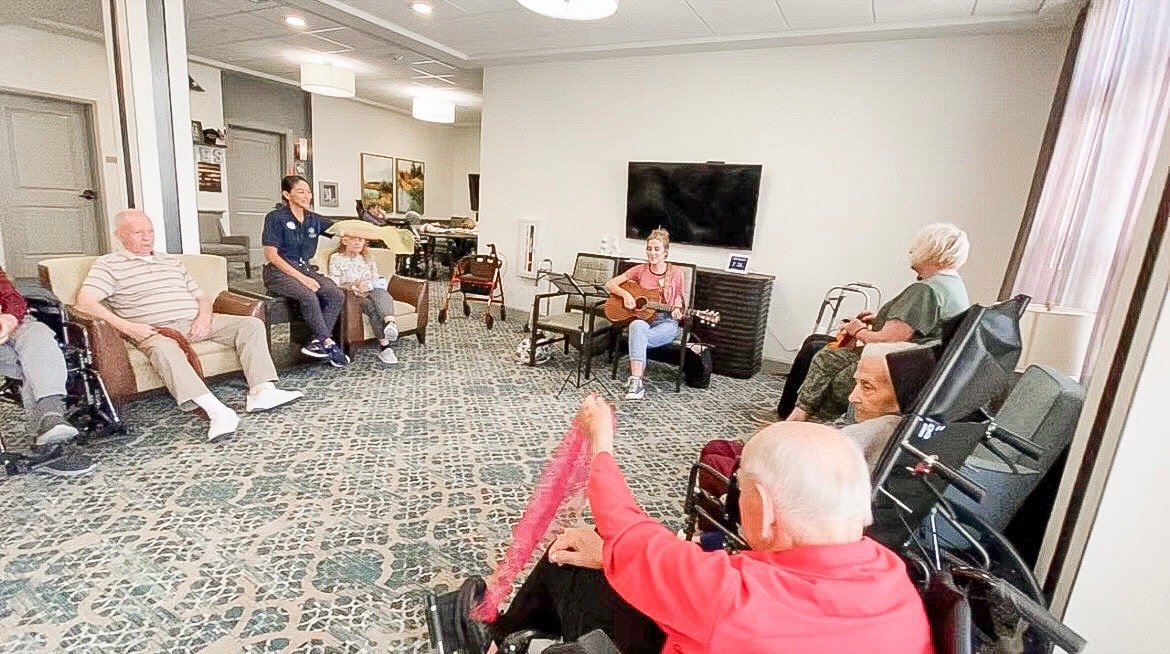Dementia is an umbrella term for the mental decline that affects daily living in older adults. Some forms of dementia include Alzheimer’s Disease, Lewy Body Dementia, Frontotemporal Dementia, Huntington’s Disease, Parkinson’s Disease, and more. The disease is progressive and currently has no cure. These diagnoses are often caused by changes in the brain with old age, genetic predisposition, and environmental factors. Symptoms of dementia include, but are not limited to, memory loss, behavioral changes, personality changes, confusion, difficulty with daily tasks, getting lost, social withdrawal, depression, difficulty conversing with others, and more. Music therapy is an allied health profession that can utilize evidence-based music interventions to treat symptoms of dementia.
The most common symptom areas that music therapists address with dementia patients are behavioral and psychological symptoms in dementia (BPSD), psychosocial, memory recall, mental health, and quality of life. Live receptive music listening, group therapy, active music therapy (instrument play), and other approaches are considered effective forms of treatment for different symptoms when done over longer periods.
In an umbrella review from Garrido (et. al), several studies found that music therapy interventions and therapeutic singing had a positive effect on BPSD symptoms and improved them in comparison to those without music therapy treatment. Garrido (et. al) also discussed that music therapy decreased anxiety levels and elevated the mood of people with dementia. Garrido (et. al) also stated that the reported benefits of music therapy participation were, “positive effects on mood and well-being; increases in energy level; cognitive stimulation; collective bonding and peer support; a sense of contributing to something bigger and more aesthetically beautiful; increases in confidence; motivation and self-esteem; and a sense of personal transcendence,” (Garrido, et. al, 2019, p. 271). For cognitive needs, Moreno-Morales (et. al) found that receptive music therapy interventions, such as music listening, are one of the most effective. The study discusses that the positive effects could be due to activation in several parts of the brain. Activating these areas of the brain could create new connections, which promotes neuroplasticity. When researching the effect of music therapy on Alzheimer’s dementia, Gómez Gallego (et. al) found that music therapy improved hallucinations, agitation, delusions, anxiety, and other psychological symptoms. The results highlighted that music therapy “increases the level of tolerance to stressful environmental stimuli that may trigger such symptoms,” (Gómez Gallego, et. al, 2017, p. 305). Receptive music therapy may allow the autonomic nervous system to remain calm, which decreases the activation of the parasympathetic nervous system. When addressing quality of life, psychosocial, and mental health needs, group music therapy increases positive moods and promotes social relationships. Furthermore, the study found that cognitive function, memory recall, language understanding, speech development and processing, and more all improved. All of these improvements are most likely due to increased spatial orientation, singing and being social with others, music-associated memories, and brain plasticity.
The studies above found results from studies that utilized individual and group music therapy treatment, and music therapy was effective in both settings. A range of results can be found depending on the setting, interventions, and individuals in the music therapy sessions. Music therapists have the ability to assess and treat the needs of others in various settings with evidence-based music interventions to treat the non-musical needs of many populations. Although dementia is not reversible, long-term music therapy treatment is evidenced as a successful solution for decreasing a variety of symptoms within this population.
-Lila Finke, Music Therapy Intern
References
Dementia. (2023, March 15). World Health Organization (WHO). Retrieved July 6, 2023, from https://www.who.int/news-room/fact-sheets/detail/dementia
Gómez Gallego, M., & Gómez García, J. (2017). Music therapy and alzheimer’s disease: Cognitive, psychological, and behavioural effects. Neurología (English Edition), 32(5), 300–308. https://doi.org/10.1016/j.nrleng.2015.12.001
Garrido, S., Baird, A., & Tamplin, J. (Eds.). (2019). Music and dementia: From cognition to therapy. Oxford University Press.
Moreno-Morales, C., Calero, R., Moreno-Morales, P., & Pintado, C. (2020). Music therapy in the treatment of dementia: A systematic review and meta-analysis. Frontiers in medicine, 7, 160. https://doi.org/10.3389/fmed.2020.00160

